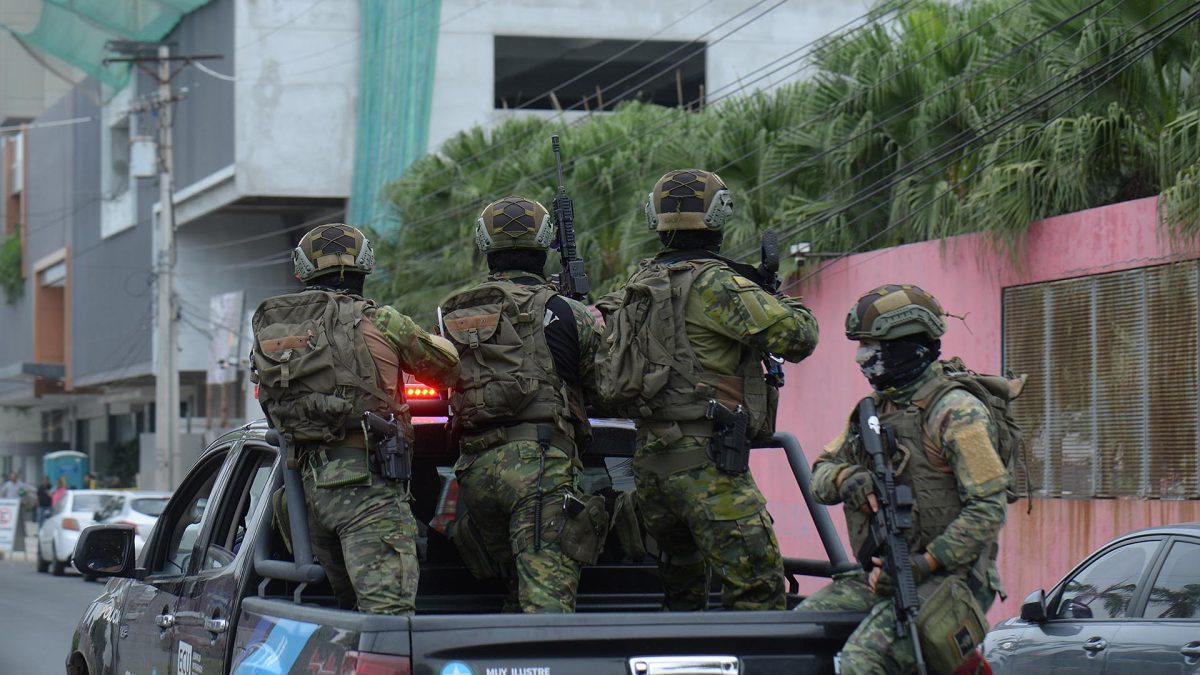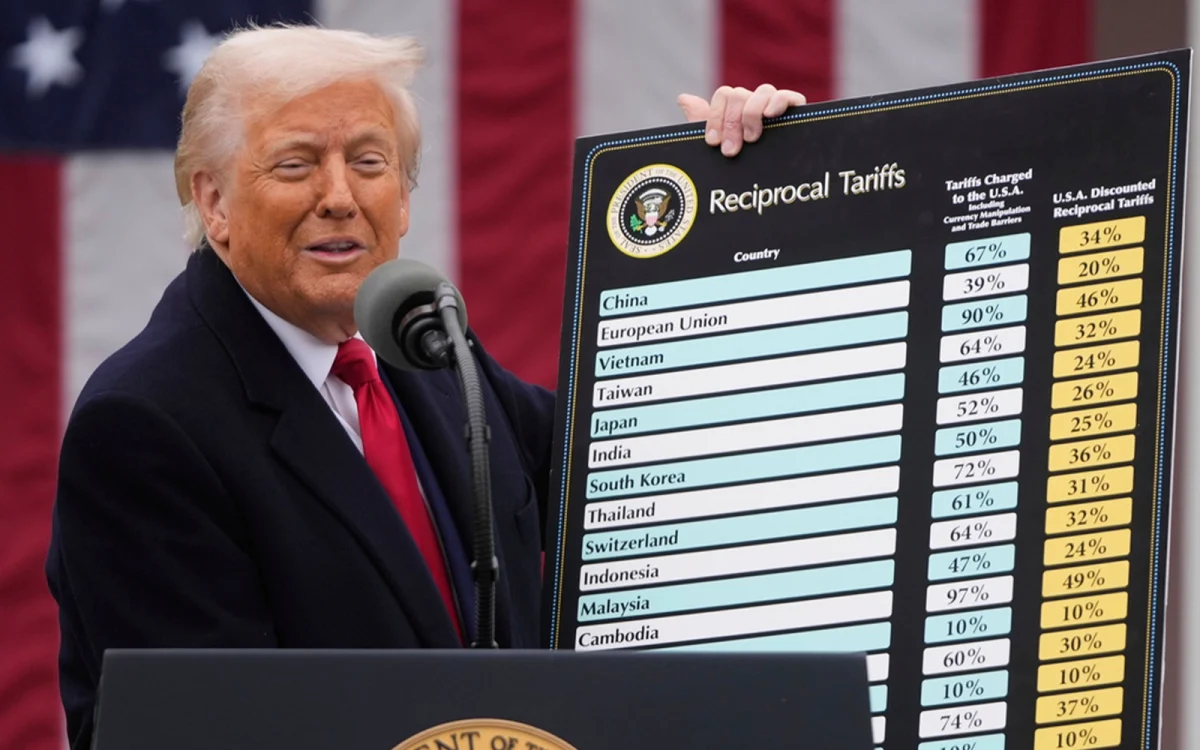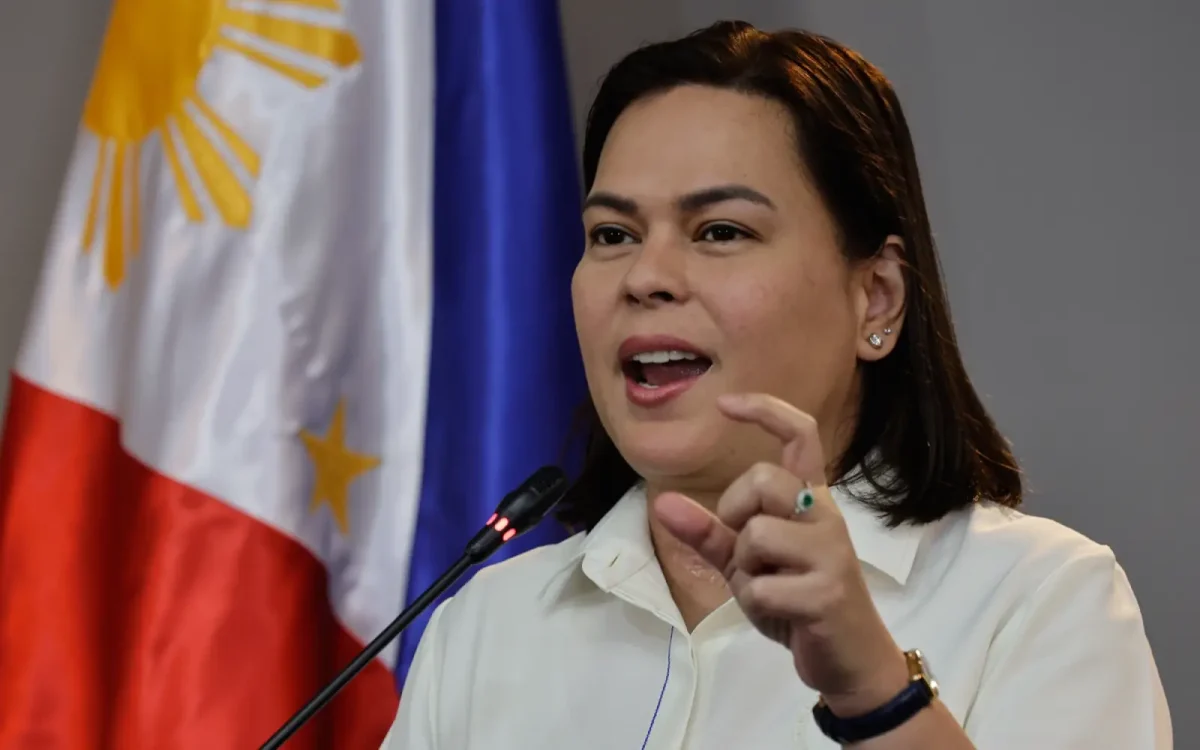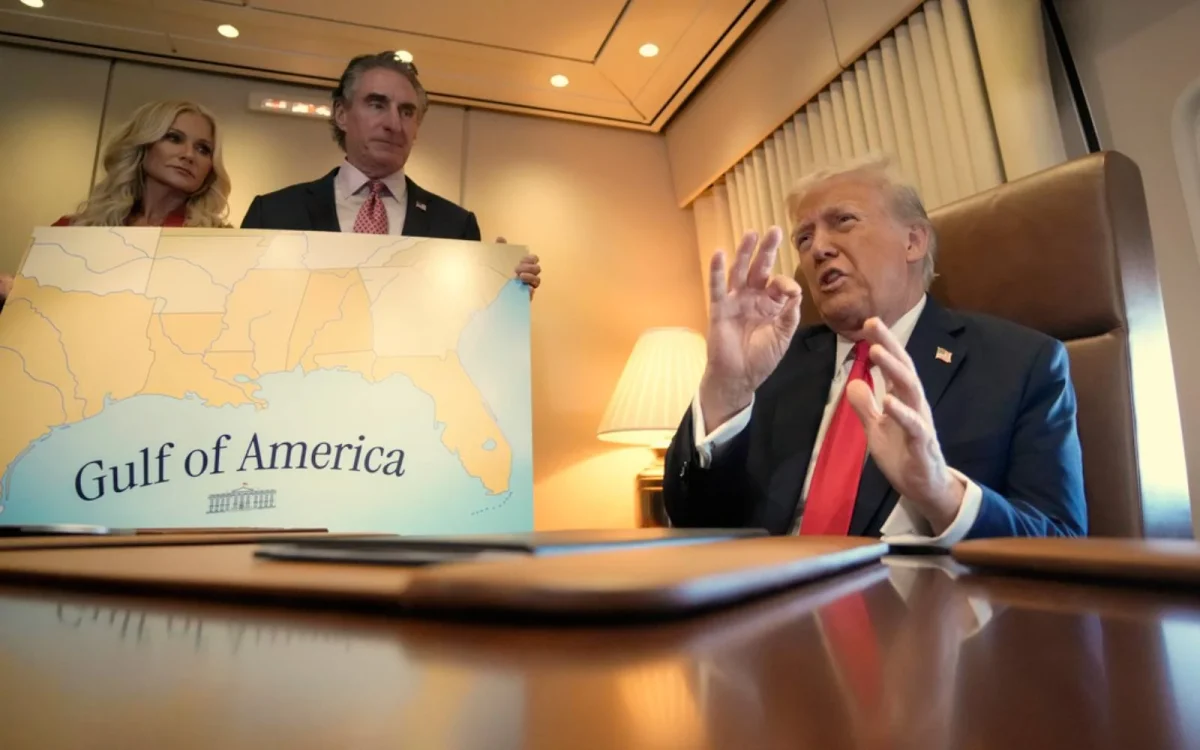Ecuador was once known for being one of Latin America’s peaceful countries. Today, civil unrest, kidnapping, and other violent crimes are seen throughout the country.
On January 9, Ecuadorian President Daniel Noboa declared Ecuador to be in a state of war against around two dozen criminal gangs. After multiple unsettling mishappenings that started in late 2023— including the escape of two large imprisoned gang leaders and multiple bombings around the country— Noboa vows that the “armed internal conflict” will bring relief to the violent crimes.
The main cause of this decree, according to sources such as the BBC, lies in the shocking event that happened earlier that day. Masked armed men broke into a television channel’s live studio. With gunshot sounds heard in the background, thousands of people throughout Ecuador witnessed the anchors being forced to lie on the floor while the men carried pistols and explosives.
The announcers were also threatened at gunpoint to read out a message. The broadcast continued for 15 minutes before the signal was cut off. Right before the live broadcast ended, a masked man was heard saying that the authorities were “messing with the mafias.”
While the police were able to make 13 arrests, the terror remained and seeped into worrying citizens. Adding to the terror, a prosecutor who was investigating the case regarding the TV live studio has been assassinated. Cesar Suarez was shot while driving near his office in Guayaquil. It has not been confirmed whether his death is related to the studio attack case.
However, this is not the only event that triggered the war. To better understand the worrying increase in violence that led to the war, it is important to step back and examine previous events involving criminal groups.
According to Al Jazeera, “Last year about 8,000 people were victims of violent deaths, making 2023 one of the most violent years in Ecuador’s history.” Last September, gangs bombed several places across the country, including prisons, and kidnapped security guards and police officials— who were all released the next day.
The most notable— and possibly most disturbing— occurrence happened on January 7. As profiled by Al Jazeera, “Jose Adolfo Macias, or ‘Fito,’ the jailed gang leader of the Los Choneros criminal group and one of Ecuador’s most powerful drug lords” escaped from prison hours before he would have been transported to a prison with maximum security.
The following day, prison riots across the country were reported. Guards were held hostage to prevent authorities from combating the riots, and almost 40 prisoners escaped. Many civilian areas were also bombed, and amidst the chaos of people fleeing into the streets, four police officers were captured.
According to the same article from Al Jazeera, “President Noboa declared ‘a state of internal armed conflict’ on January 10 following the riots, deploying the military into the streets and into prisons to search for Fito and to bring order.” A 60-day nationwide curfew has also been established. Noboa claims that the main goal of the deployment was to “neutralize” 22 gangs, which he referred to as terrorist organizations, according to BBC.
On January 21, the Ecuadorian police force was able to arrest 68 gang members after they attempted to take over a hospital, where another member was receiving medical care. Although it has not been revealed which gang or member was central to this incident, police have since said that he came to the hospital with gunshot wounds and died due to those wounds.
Peru also sent armed forces to its north border in case any criminals from Ecuador fled the country and entered its territory.
According to BBC, “The US has said it condemns the ‘brazen attacks’ in Ecuador and is ‘coordinating closely’ with President Daniel Noboa and his Ecuadorian government and stands ‘ready to provide assistance’.”
As there are not only one or two powerful gangs in Ecuador, on January 22, President Noboa began to look beyond Ecuador’s borders for assistance, “financial support from the U.S. and Europe,” according to NBC News. In addition, “Top U.S. officials are visiting Ecuador this week to boost bilateral cooperation on security and fighting organized crime.”
Within the state, $1 billion was cut from government spending in order to fund the internal war. In an interview, Noboa stated, “If we do not fight and fund ourselves we will lose the country.”
Since Noboa’s declaration of war on organized criminal groups, more than 2,700 suspects have been arrested. With gangs and drug cartels entrenched in Ecuador’s history, it is undeniable that Ecuadorian citizens are hoping this would bring relief to the increasing violent crimes. However, as of right now, this war involves neverending fear generated by continuous bombings of civilian areas, kidnapping of authorities and other police officials, and other fearful presence of gang members in public places.







